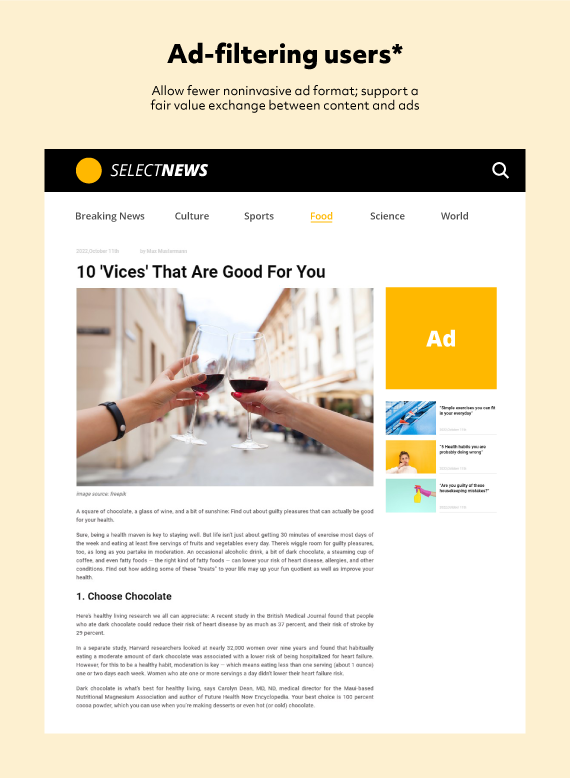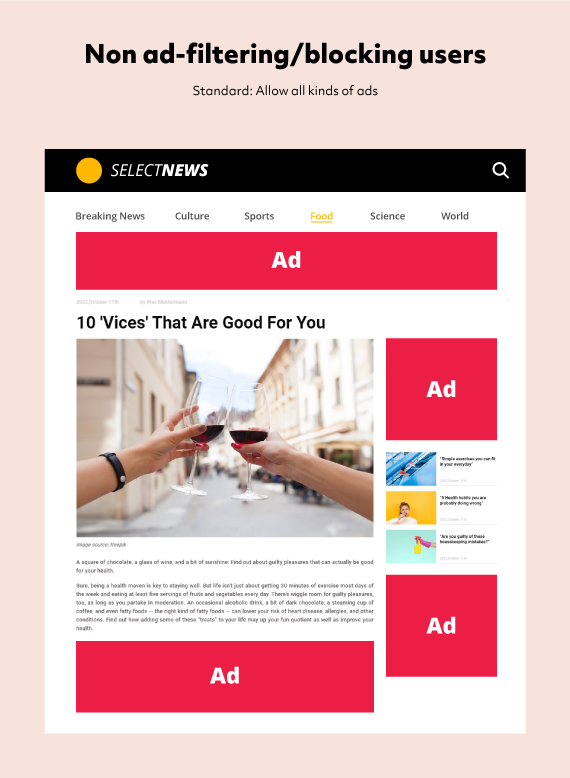Environmental sustainability is one of the most important issues facing society today. Both consumers and brands recognize the need to take action and are trying to reduce their carbon offset. However, while 90% of executives believe sustainability is crucial, only 60% have a sustainability strategy in place. The vast majority of marketers believe not enough has been done to address the carbon cost of online ads, and experts link it to a lack of education, standardization and regulation. The Acceptable Ads Committee is actively participating in the digital media industry’s efforts to reduce its carbon footprint.
Brands spent over $500B on digital advertising in the past year. Each of those digital ads was responsible for some carbon emissions. All the resources required to create the ad, the servers that deliver it, and the consumer’s device that renders it. While the contribution of each individual ad may be small, the vast size of the industry means it has a real impact.
In an effort to help consumers and brands make more informed decisions, the Acceptable Ads Committee has conducted a preliminary study to assess the carbon impact of an Acceptable Ads browsing experience. Our research shows that browsing the web in the traditional “non-filtered” manner emits 2.4 times as much carbon compared to using an ad filter that has opted-in to Acceptable Ads. The use of an ad filter produced either the same or less carbon emissions on 92% of the websites that were analyzed.


The Acceptable Ads Committee used Scope3’s emission measuring methodology to quantify the CO2 emissions on a representative page of Similarweb’s 100 most visited websites in the world. This preliminary analysis indicates that publishers that abide by the Acceptable Ads Standard emit significantly less carbon when monetizing their properties than when they do not abide by the Standard.
It is increasingly important for the digital media industry to prioritize sustainability and find ways to reduce its environmental impact in the long term, and the Acceptable Ads Committee is committed to conducting further research to better understand the impact of industry initiatives on both the environment and user experience. As customers become more selective of the brands they choose to support, advertisers and publishers need leading, independent research to make informed decisions.
The Acceptable Ads Committee has provided a platform for internet users to express their preferences while also serving the needs of industry stakeholders. Over 250 million ad-filtering users worldwide have opted into the Acceptable Ads browsing experience, and 60 of Comscore’s Top 100 publishers monetize their ad-blocking audiences according to the Acceptable Ads Standard. With such a large group of participants worldwide, the Acceptable Ads experience has the potential to foster a meaningful impact on global carbon emissions while contributing to maintaining a sustainable open web.
Click here and be the first to know when new research becomes available.
About the Acceptable Ads Committee
The Acceptable Ads Committee is a non-profit organization that was established in 2017 to define the Standard for what constitutes an “acceptable ad”. The Committee comprises various stakeholder representatives, including users, publishers, advertisers, ad tech companies, and digital rights organizations. We conduct independent user research and solicit feedback from industry stakeholders in maintaining and updating the Acceptable Ads Standard. More information about our structure and mandate can be found on the AAC website.
Image by Freepik